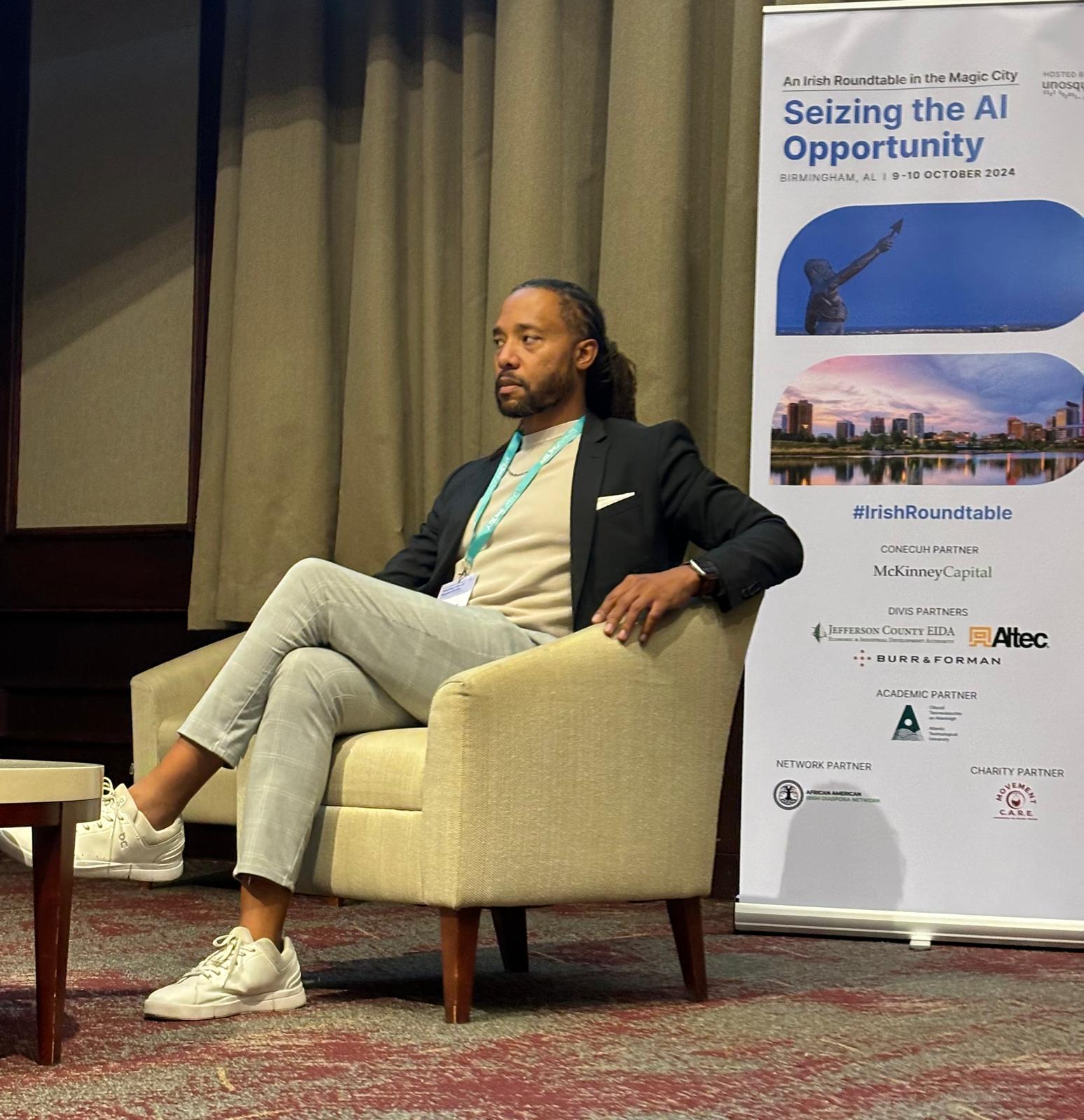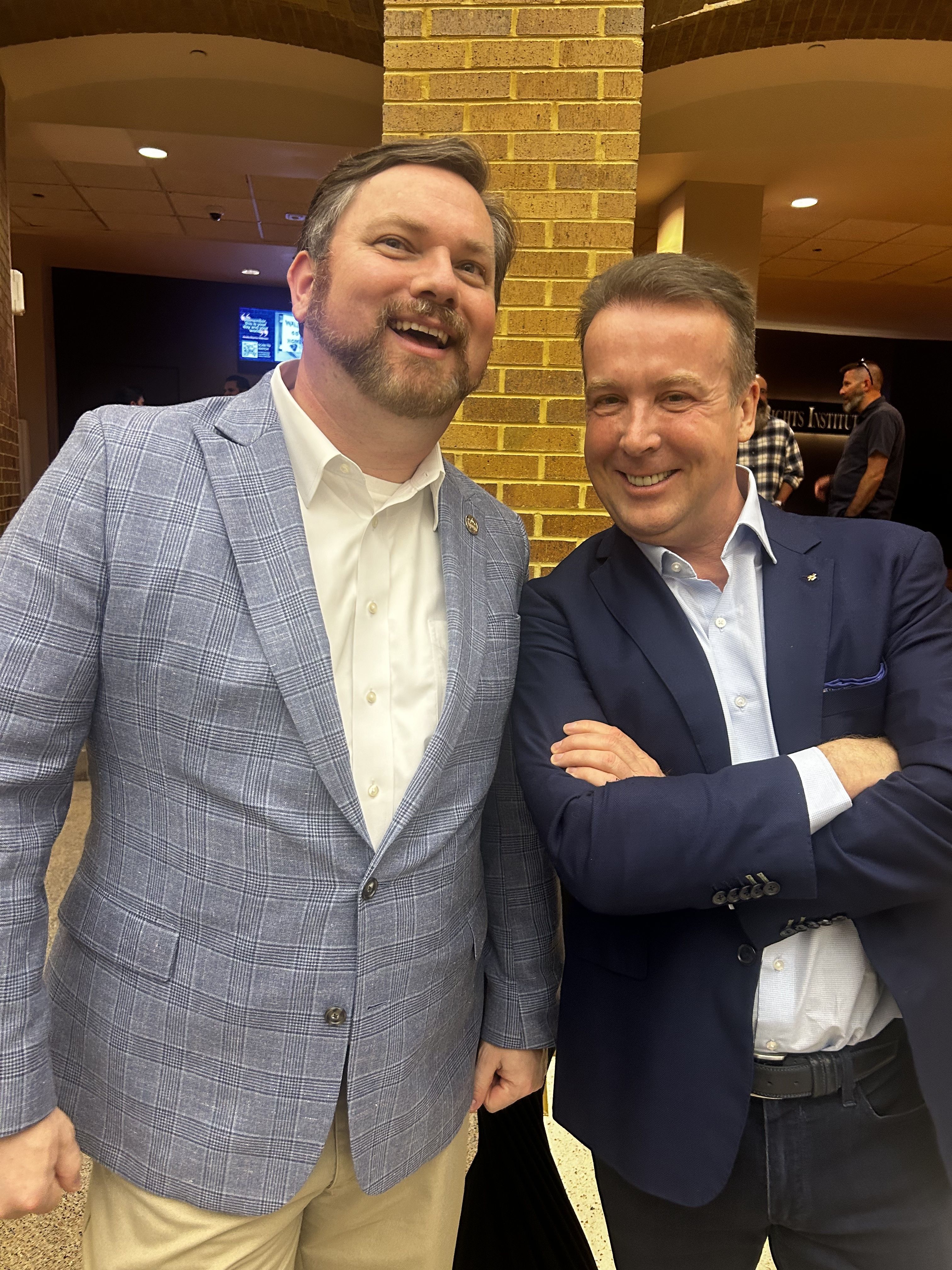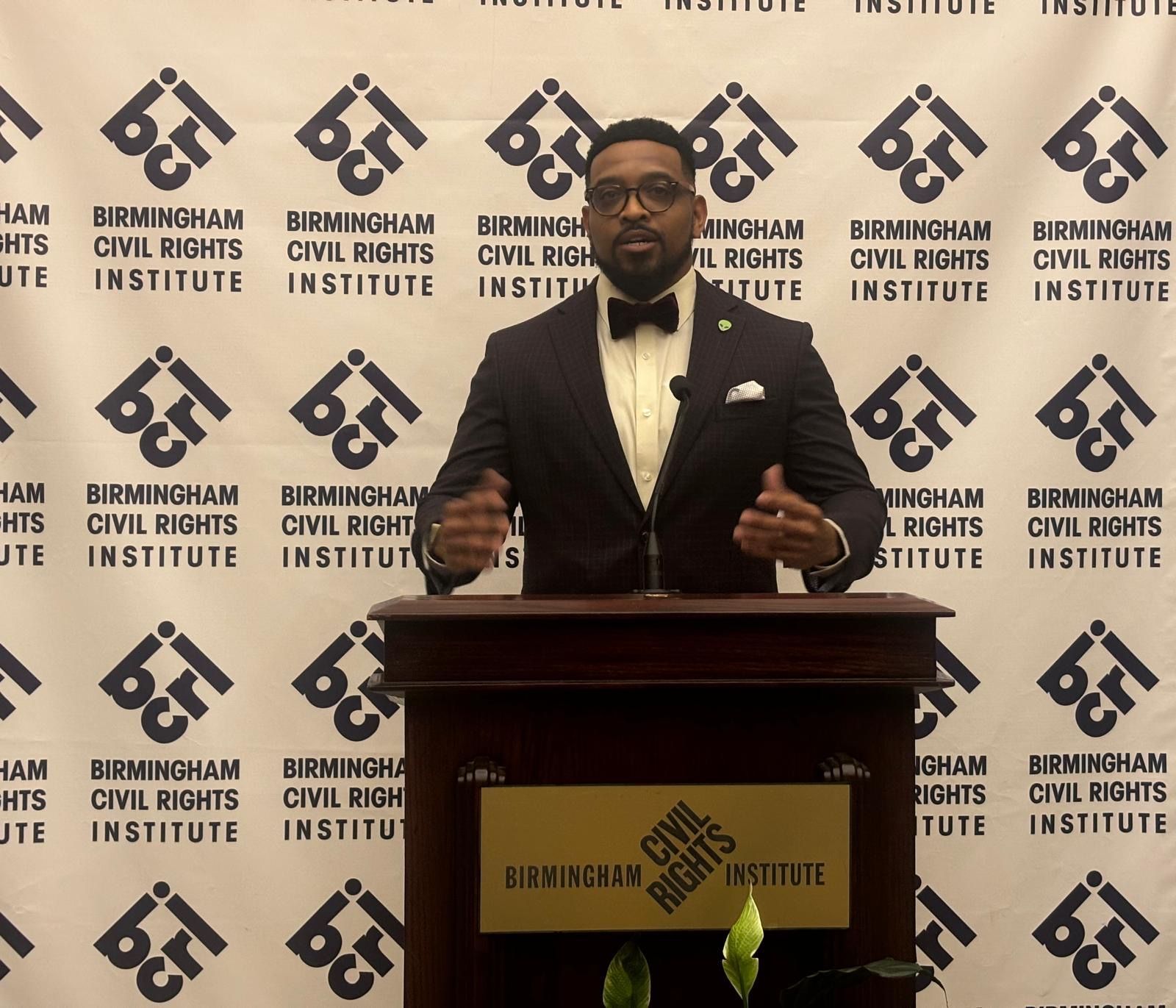In today’s rapidly evolving landscape, artificial intelligence (AI) is reshaping industries across the globe. Governments and businesses are navigating both the challenges and opportunities presented by this transformative technology. At a recent roundtable held in Birmingham, Alabama, leaders from various sectors came together to explore AI’s implications, with particular focus on its impact on education, healthcare, and governance.
Featuring a delegation from Ireland, the event provided insights into the intersection of Alabama’s growing tech ecosystem and Ireland’s leadership in AI innovation.
The Irish delegation, fresh from engagements with tech giants like Salesforce and OpenAI, shared perspectives on the European Union’s pioneering AI regulations, particularly the AI Act. Discussions highlighted Alabama’s potential to become a key player in the global AI landscape while balancing innovation with the need to protect public safety, especially for vulnerable groups like children. AI’s role in enhancing daily life—from smart home devices to AI-powered government services—was also emphasized. TECH TITAN: Deontée Gordon of TechBirmingham at the Roundtable
As the event showcased, Alabama has an opportunity to lead in AI innovation, especially in underserved communities. By leveraging AI for solutions such as virtual experts for classrooms and telehealth advancements in rural areas, the state can position itself at the forefront of technological and economic growth.
Tech Innovation: A Catalyst for Job Creation and Regeneration
Artificial intelligence is not only transforming industries but also driving economic growth and community regeneration by creating high-quality jobs. At the roundtable, speakers underscored AI’s impact on job creation in healthcare, agriculture, and traffic management.
AI-driven advancements in these sectors are increasing efficiency and creating new opportunities for skilled workers.
In healthcare, AI is enhancing patient care, particularly in areas like chronic disease management, respiratory health, and diagnostics. China’s application of AI in medicalpractices was highlighted as a successful model for improving public health and generating jobs. Similarly, AI-driven agricultural innovations, such as moisture control and automated production processes, are boosting productivity and offering new career paths in tech-enhanced farming. ROUNDTABLE REFLECTION: Audience at the Irish Roundtable in the Magic City
Assessing AI and Tech Start-Up Investments
Evaluating tech start-up investments has become a critical challenge in the AI-driven marketplace. During the roundtable chaired by Will Blackburn, Co-Founder of DevClarity.ai, panelists Deon Gordon (CEO, TechBirmingham), Liz Pharo (Founder & CEO, Divorce.com), and Dr. Victoria Manx (Partner, Eckuity Capital) explored key investment principles— problem-solving, market size, and customer acquisition—as essential for navigating the hype around AI-driven businesses.
Deon Gordon emphasized the importance of grounding AI investments in basic business fundamentals. The panelists also stressed that successful AI applications must be tailored to industry-specific challenges, with Dr. Manx pointing to healthcare as a prime example of how AI can transform patient outcomes when carefully implemented.
Delighted to share a message from Minister Conor Murphy MLA @Economy_NI with our friends in Birmingham, AL at the inaugural #IrishRoundtable in the Magic City @conormurphysf @unosquare pic.twitter.com/gxHD4jQSR9
— Aisling Events (@aislingevents) October 10, 2024
The panel concluded that while AI offers significant opportunities, a clear and sustainable business model is essential for long-term success.
Building a Bridge of Innovation Between Belfast and Birmingham
Collaboration between cities can foster economic mobility and technological innovation, and the roundtable emphasized the potential for such a partnership between Belfast and Birmingham. Giancarlo DiVece, CEO of Unosquare, spoke about building strategic partnerships to leverage the unique strengths of both cities in AI-driven innovation.
Speakers at the event noted that AI will play a critical role in transforming industries and creating jobs in both regions. By fostering collaboration between government, industry, and community organizations, cities like Belfast and Birmingham can become global hubs for AI innovation.
Transforming Healthcare with AI
AI is rapidly transforming healthcare by improving diagnostics, treatment, and patient management. The roundtable session, chaired by Tim Brundle, Director of Innovation at Ulster University, featured presentations by Dr. Daniel Adamek (Founder, Little Orange Fish), Arie Nakhmani (Associate Professor, University of Alabama at Birmingham), Aoife Ní Mhuirí (Founder & CEO, Salaso Health Solutions), and Ryan Johnson (CIO, Medxoom). Together, they discussed AI’s ability to predict and prevent health crises, such as chronic obstructive pulmonary disease (COPD), and its applications in physiotherapy and preventive care.
Building trust between clinicians and AI technologies remains a key challenge, but the panelists expressed optimism about AI’s ability to close systemic gaps in healthcare and improve patient outcomes, particularly in underserved communities.
The Global Search for AI Talent
As cities like Birmingham and Belfast compete to attract top AI talent, the roundtable session chaired by Tracy DeBerry, Senior Project Manager at The Aerospace Corporation, featured panelists Miller Girvin (Executive VP, Innovation & Entrepreneurship, Economic Development Partnership of Alabama), Cornell Wesley (Director, Office of Innovation and Economic Opportunity, City of Birmingham), Richard Waterson (CEO, Hayward Hawk), and Sam Gootlieb (Founding Software Engineer, ShopSense.ai). They highlighted the importance of quality of life, cultural identity, and partnerships with educational institutions in attracting talent. DOUBLE MIKED: Rep Mike Shaw of Alabama State Legislature and investor Mike Brewster at the Irish AI Roundrtable in Birmingham, AL
Smaller cities with a lower cost of living and access to nature, such as Birmingham, are becoming attractive alternatives to traditional tech hubs like Silicon Valley. Local leaders emphasized the need to retain young talent by fostering inclusive communities and promoting economic development. Partnerships with universities and training programs were identified as essential for building a talent pipeline capable of meeting the demands of the AI industry.
Using AI to Drive Strategic Growth
AI is a powerful tool for driving innovation and business growth. In a session chaired by Anna Horner from Options IT, panelists Colleen McClure (Assistant Professor, University of Alabama at Birmingham), Sandy Martinuk (Senior Director, Strategy & Innovation, Unosquare), and Thomas Dowling (Head of Department of Computing, Atlantic Technological University) examined how businesses can leverage AI to enhance productivity and reshape workforce strategies.
The panelists explored whether AI should complement or replace human decision-making, ultimately concluding that AI works best as a tool that enhances human expertise. AI’s potential lies in its ability to enhance productivity and unlock new opportunities when integrated thoughtfully into business strategies.
Understanding the AI Hype Cycle
The roundtable featured a candid discussion on the AI hype cycle, with Laurence Moroney, former Lead AI Advocacy at Google, delivering a virtual keynote. Moroney addressed the distinction between AI’s potential and inflated expectations, using the Gartner Hype Cycle as a framework for understanding how businesses can avoid the pitfalls of overhyping AI technologies.
Generative AI tools like ChatGPT were identified as being at the peak of inflated expectations, with companies rushing to adopt AI solutions prematurely. Moroney stressed that the real value of AI lies in thoughtful implementation, combining technological innovation with human expertise to solve real-world challenges.
The Birmingham AI roundtable demonstrated the immense potential of artificial intelligence to transform industries, cities, and communities. AI’s ability to create jobs, improve healthcare, and drive strategic growth positions it as a crucial tool for the future. However, the key to realizing AI’s full potential lies in combining human expertise with technological innovation, fostering collaboration, and investing in education.
As cities like Birmingham and Belfast continue to position themselves as global leaders in AI, they can capitalize on the opportunities presented by this rapidly evolving technology to drive sustainable growth and economic development.
Joel Murphy is an Alabama-based tech engineer and advocate who is also behind the Revive Ireland initiative.









